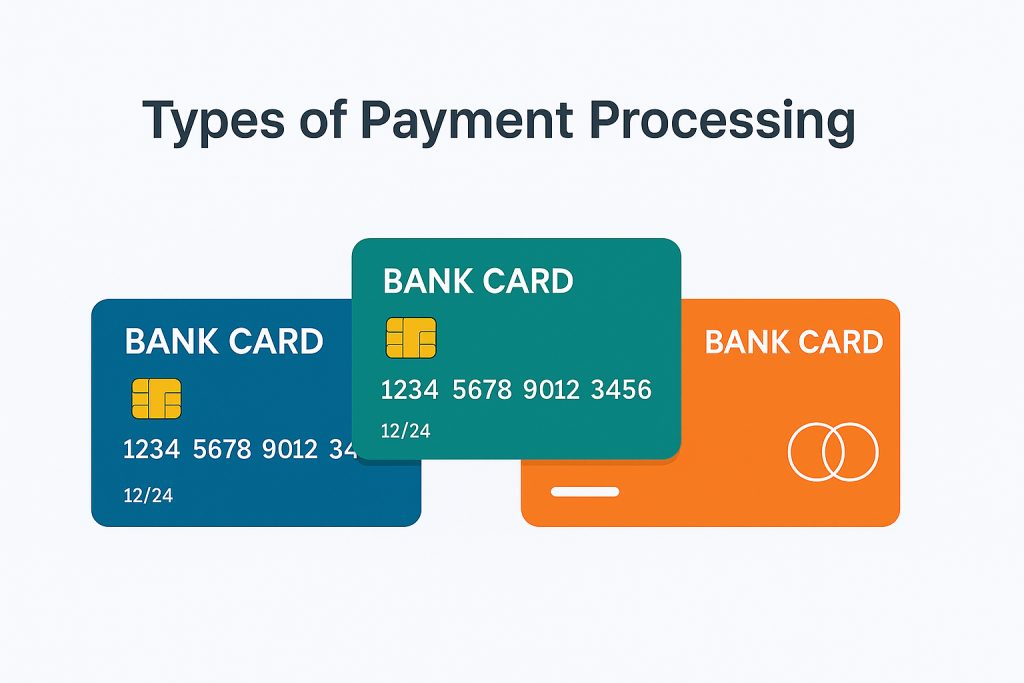As an online merchant, you’re bound to encounter various types of bank cards—debit, credit, prepaid, and even virtual cards. Each of these payment methods comes with its own set of features, benefits, and challenges that can significantly impact your payment processing flow. Understanding how each card type behaves is essential to optimize your checkout experience, reduce risk, and boost customer satisfaction.
At Payment.net, we help businesses decode the complexities of payment systems. Here’s a breakdown of the most common bank cards and how they affect your transaction process.
Debit cards
What are debit cards?
Debit cards are directly connected to the customer’s bank account. When a transaction is made, the amount is instantly withdrawn from their available balance. They’re one of the most common payment options, both online and in-store.
Implications for payment processing:
Debit cards offer fast settlement, as funds are transferred in real time. This means you get paid faster and can manage cash flow more effectively. Transaction fees are usually lower compared to credit cards, making them a cost-efficient option for merchants. However, if a customer lacks sufficient funds, the payment can fail, which may disrupt the transaction process. Some transactions might require a PIN, though this is rare for online payments.
Credit cards
What are credit cards?
Credit cards allow customers to borrow money up to a certain limit to make purchases. They’re billed monthly and can choose to pay in full or over time, often with interest.
Implications for payment processing:
Credit card payments come with higher processing fees, but they’re often favored for larger transactions. One major concern is the risk of chargebacks—customers can dispute a charge, and if resolved in their favor, you might lose the sale and pay extra fees. Credit card transactions may take longer to settle and are more susceptible to fraud, especially if card details are stolen. It’s crucial to have solid anti-fraud systems in place to protect your revenue.
Prepaid cards
What are prepaid cards?
A prepaid card is preloaded with a set amount of money and isn’t linked to a bank account. It’s popular among unbanked users or those who prefer to control spending.
Implications for payment processing:
These cards are limited to available funds, which means transactions are generally processed quickly if the balance is sufficient. While processing fees are typically lower, prepaid cards come with a higher fraud risk due to their often anonymous nature. Merchants should implement identity verification steps to reduce exposure. Also, prepaid cards don’t involve credit checks, broadening access for a wider customer base.
Virtual cards
What are virtual cards?
Virtual cards are digital-only versions of debit or prepaid cards, issued for online use—often for one-time or short-term transactions.
Implications for payment processing:
They’re valued for their enhanced security in online environments. Since they are often single-use, the risk of fraud is minimized. However, they can’t be used in physical stores and may present issues when issuing refunds, especially if the card has expired or been deactivated. Make sure your payment gateway supports these transactions to avoid friction.
Which card types should your business accept?
Choosing which cards to accept depends on your business model, target audience, and risk tolerance.
- Debit cards: Great for low-cost transactions and fast cash flow.
- Credit cards: Ideal for high-value purchases and customers looking for flexibility.
- Prepaid cards: Useful for reaching unbanked customers or those without credit access.
- Virtual cards: Best for online businesses that prioritize fraud prevention and secure one-time payments.
A diversified card acceptance strategy ensures you don’t miss out on potential sales due to limited payment options.
Final thoughts
Understanding the nuances between debit, credit, prepaid, and virtual cards helps you design a smarter, more flexible payment experience. Each type has unique implications for security, fees, and customer satisfaction. The more informed your strategy, the more resilient and scalable your payment infrastructure will be.
At Payment.net, we simplify your payment operations by supporting all major card types while helping you reduce risk, lower costs, and improve conversion rates.
🚀 Ready to optimize your payments and boost revenue? Contact our team today and discover how Payment.net can power your growth.

Are you having trouble obtaining a merchant account?
If you run an innovative business, feel free to contact our expert to guide you in choosing the best payment service provider tailored to your needs.


